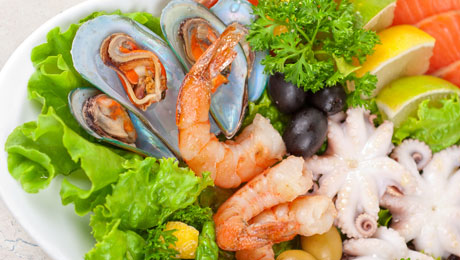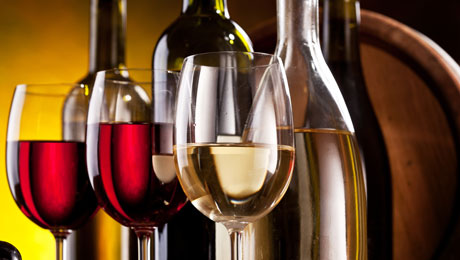Photo: naftemporiki.gr
In recent years, Easter Lent in Greece has been respected by young and old people, but only for religious reasons. The good food offered during lent in combination with the secrets of the Mediterranean diet seems to be a healthy way to get in shape for about two months. Fasting begins gradually and does not suddenly deprive the body of useful substances. The Monday following the first Sunday before Lent in Greece is called "Clean Monday". Traditionally, seafood is consumed then and experts recommend fish roe. It is rich in magnesium, phosphorus, zinc, vitamin A and D, but it also contains sodium. This makes it especially dangerous for sufferers of high blood pressure when consumed in large quantities, so be careful with portions. A tablespoon of roe contains about 100 calories and about 120 milligrams of cholesterol.

Halva is another traditional food during Lent. There are many varieties, but sesame halva remains the healthiest. Made of sesame seed, it contains monounsaturated and polyunsaturated fatty acids, which are very good for the heart and brain. It is rich in vitamins, but also in metals and minerals like calcium, magnesium, selenium, phosphorus, zinc, which help towards the better absorption of vitamins and heal the bones. It gives the body a high level of organic vegetable protein and of sterols, lignans, and vitamin E, which act as antioxidants. These nutrients for the body, however, come at the cost of high calories, so if you do not want to put on weight, you should consume it in limited quantities. 100 g halva can contain up to 500 calories.

Seafood such as squid, mussels, octopus and shrimp is rich in omega-3 rich fatty acids beneficial for the heart, iron, iodine, vitamin B complex, phosphorus and zinc. Seafood is a worthy substitute for red meat, but healthier. The calories in these foods depend on the method of preparation. Baked or boiled, squid and shrimp contain about 100 calories per serving. Grilled octopus has about 180 calories per serving and roasted lobster contains less than 100 calories. A large squid when boiled has 250 calories per serving, 12 medium-sized oysters add to our diet about 100 calories, and four raw mussels contain 30 calories.

Ordinary bean soup is a traditional dish in the Balkans and it contains many valuable substances for the body. It contains a combination of cereal proteins that can meet the needs of the body in valuable amino acids and B vitamins, potassium, phosphorus and magnesium. All this strengthens the bones and improves metabolism. However, pulses have their side effects and can lead to bloating and indigestion, so pay attention to quantities. The calories per serving are about 450.

Olives are one of the healthiest options for a quick snack during the day. They are rich in monounsaturated fats that lower "bad" cholesterol and are friendly to the heart. They are also rich in vitamins A, D, E and K, and in polyphenols, antioxidants that help fight free radicals. Due to the high levels of good fats, three large olives may contain 50 calories, although this depends on the variety of olives themselves. A quick summer salad that takes less than a minute to prepare and is suitable for people with a busy schedule is a sliced fresh cucumber and olives and a little olive oil, lemon and oregano. It is nutritious and full of substances useful for the body.

True to our Balkan customs, fasting or not, alcohol constantly remains on our table. Beer is rich in vitamins B, antioxidants, potassium, calcium and magnesium. Wine, especially red, is rich in antioxidants as is white wine, but to a lesser extent. Ouzo, anisette or other anise drinks containing terpenes have antioxidant and anti-inflammatory effects; protect the body against various serious diseases and prevent atherosclerotic plaque from forming. However, to have a healthy effect, all these drinks should be consumed in moderation (1-2 glasses). Otherwise, in addition to the fact that you can get drunk, you will spoil your diet. Furthermore, the nutrients will not be absorbed during the digestive process and this will cause gastrointestinal problems, bloating and other discomforts. A glass of wine has about 100 calories, a glass of beer - a little more than 100, and the calories in ouzo exceed 150.